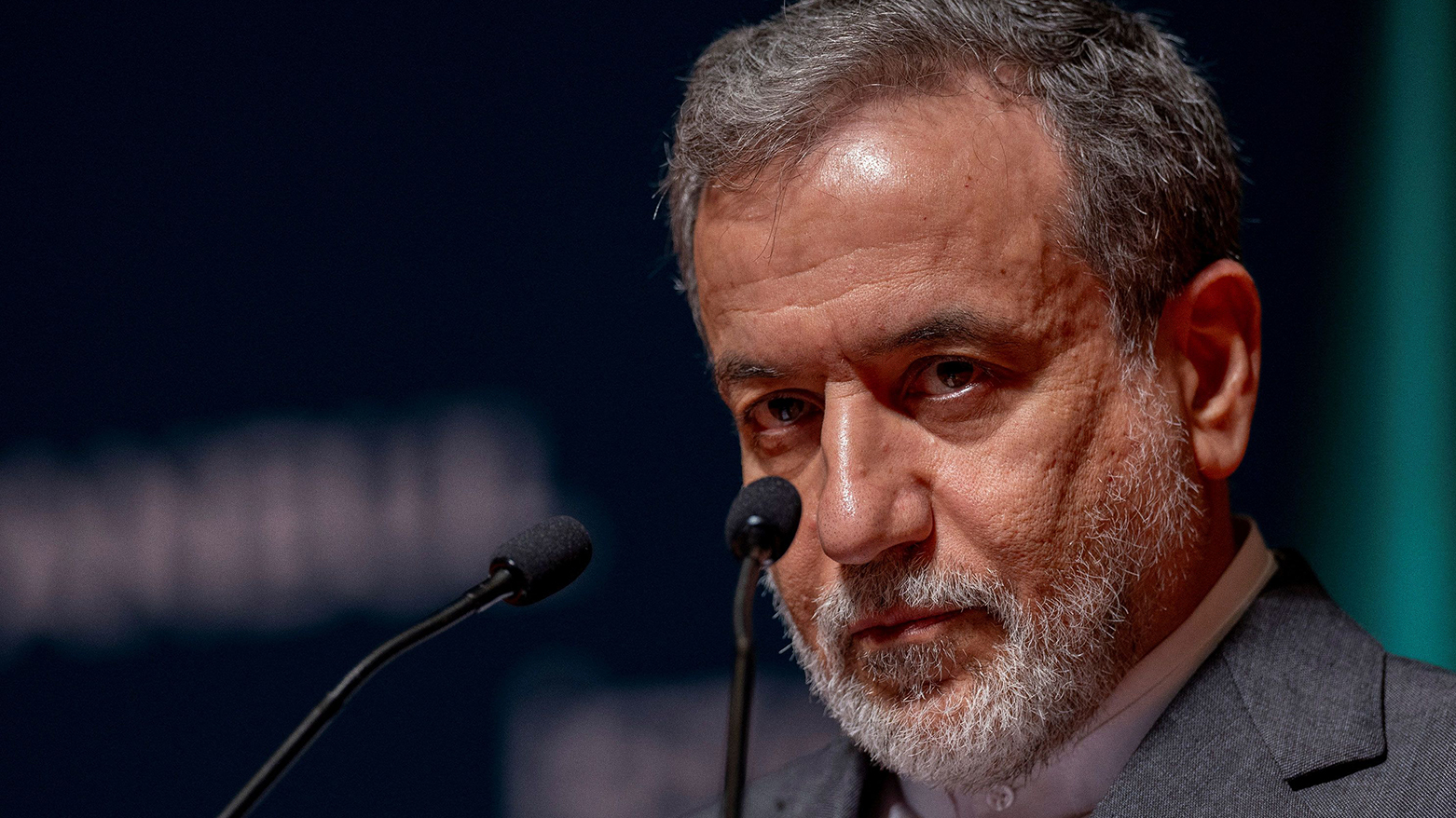'Europe Has No Authority to Trigger JCPOA Snapback,' Says Iran FM
Iran's FM Araghchi tells IRIB Europe lacks authority for JCPOA snapback. He states that war is not imminent, outlines new conditions for IAEA cooperation, and addresses regional issues, including the Zangezur corridor and the role of the resistance.

ERBIL (Kurdistan 24) – Iran’s Foreign Minister, Abbas Araghchi, has declared that European nations lack the authority to implement any part of the 2015 nuclear deal, including the "snapback" mechanism to reimpose United Nations sanctions, arguing their positions have disqualified them as members of the accord.
In an extensive interview with the IRIB News Agency while on a visit to Karbala, Araghchi stated that while the Europeans have a deadline of Oct. 20th to trigger the mechanism, their insistence on "zero enrichment" for Iran, a stance he argued is "contrary to the terms of the Joint Comprehensive Plan of Action (JCPOA)", legally prevents them from using its provisions.
He detailed a significant legal challenge at the UN Security Council, where he said Iran, China, and Russia are contesting the European powers' right to act.
Regarding the technicalities of the snapback mechanism, Araghchi explained that its activation would not add significantly to the extensive unilateral sanctions already imposed by the United States.
He clarified that Security Council sanctions are primarily "list-based," targeting specific individuals and companies, and do not include oil or banking sanctions.
However, he acknowledged that snapback would have negative consequences, including the return of the arms embargo and Iran's designation under Chapter VII of the UN Charter as a "threat to international peace and security."
He affirmed that Iran, in cooperation with China and Russia, is using various tools to prevent this outcome, but has its own tools for reaction should it occur.
Regarding cooperation with the International Atomic Energy Agency (IAEA) following a recent attack on Iranian nuclear facilities, Araghchi outlined a new framework for engagement.
As reported by IRIB, he stated that future cooperation will be determined by three factors: the role of the Supreme National Security Council, a recent law passed by the Iranian Parliament, and the "on-the-ground realities" at the damaged sites.
Iran's Foreign Minister explained that a new understanding must be negotiated with the agency, questioning how inspections could proceed at a bombed facility without an established protocol.
He noted that an initial meeting with an IAEA delegation was "not a bad start," but reaching a new agreement will take time. The upcoming refueling of the Bushehr power plant, which requires IAEA inspectors, will be a case for the Supreme National Security Council to decide upon, he added.
Addressing geopolitical developments in the Caucasus, Araghchi commented on the Zangezur corridor (also known as the Trump corridor) issue, stating that the current situation is "worlds apart" from the initial fears of a change in the region's geopolitics.
He reported that Armenian officials, including the prime minister, have provided assurances to Iran that all of its red lines have been respected.
According to Araghchi, plans for seizing Armenian territory or creating a non-sovereign corridor have been reduced to the construction of a road by a private American engineering company operating under Armenian law and sovereignty. While acknowledging that any foreign presence is a cause for vigilance, he cautioned against exaggerating the situation, stating that claims of becoming "neighbors with NATO" are incorrect.
He reiterated Iran's official position of welcoming peace between Armenia and Azerbaijan but opposing any foreign presence that could undermine regional stability.
The Foreign Minister also discussed a recent trip by the head of Iran's Supreme National Security Council, Ali Larijani, to Iraq and Lebanon.
According to the IRIB report, Araghchi described the visit as a "very good trip." He added that Larijani's visit to Beirut was "timely and necessary" amid Lebanon's sensitive conditions and involved serious and useful discussions.
In this context, Araghchi rejected the notion of a conflict between "the field and diplomacy," asserting they are complementary. "If the field does not generate power, diplomacy cannot move either," he stated, explaining that diplomacy's role is to convert power generated on the ground into national interests, with media serving as a crucial third component in shaping the narrative.
On the pressing question of a potential conflict, Araghchi stated that, as an expert in international relations for nearly 40 years, he does not believe war is imminent.
He told IRIB that while he had a feeling war could be near before a recent "12-day war," his assessment has since changed based on regional conditions and the readiness of Iran's armed forces.
He warned against what he termed psychological warfare aimed at keeping Iranian society in a state of fear and anxiety. Araghchi emphasized that preparedness is the best deterrent to war, but also noted that one should not prepare for the next war using only the lessons of the last, stressing the need to be wary of new military, psychological, and political tactics.
Araghchi also reflected on the increased solidarity he observed among Shia communities in Iran and Iraq following the recent conflict. He described the Arbaeen march as a "show of power by the Shia" and linked the resilience of his country to an "Ashura-like and Karbala-like perspective on this war."
He further elaborated on the concept of resistance, particularly in Lebanon, stating his belief that "peace in the region without the weapons of the resistance would be more unstable," arguing it is the only force creating deterrence against what he called "Israel's expansionism."
Araghchi emphasized that Hezbollah is an independent group and that its strength is not diminished by the martyrdom of its commanders, citing the philosophy that "blood is victorious over the sword."
